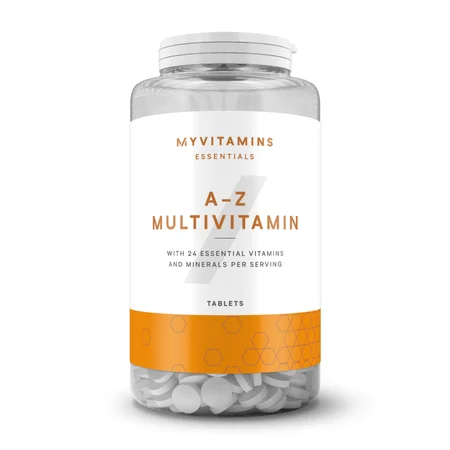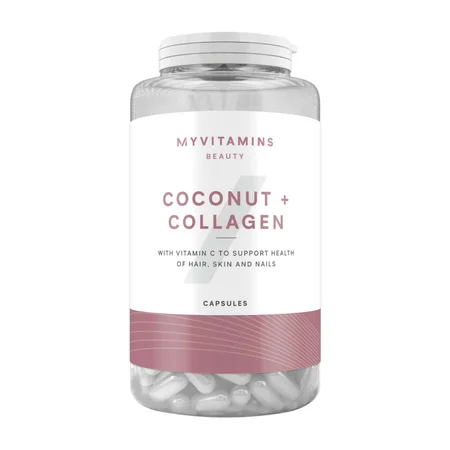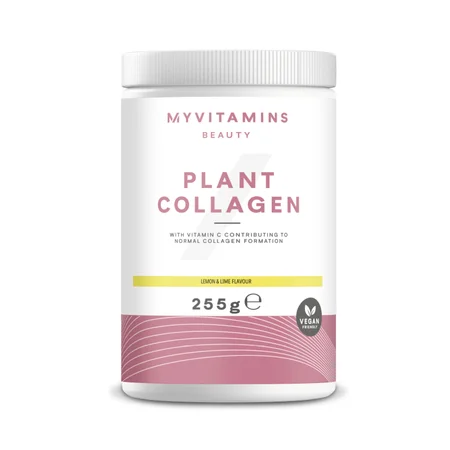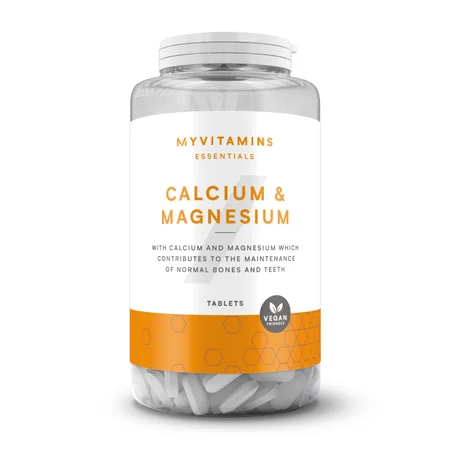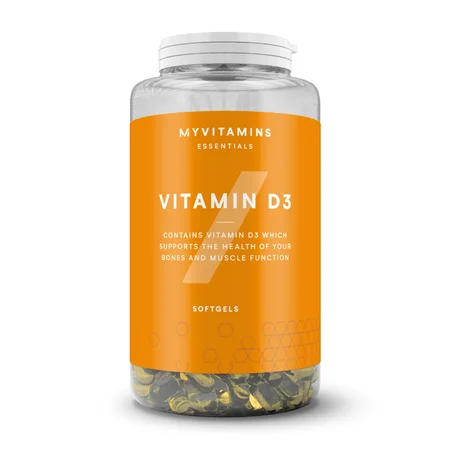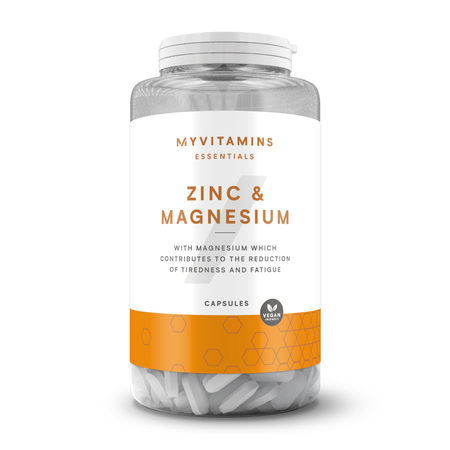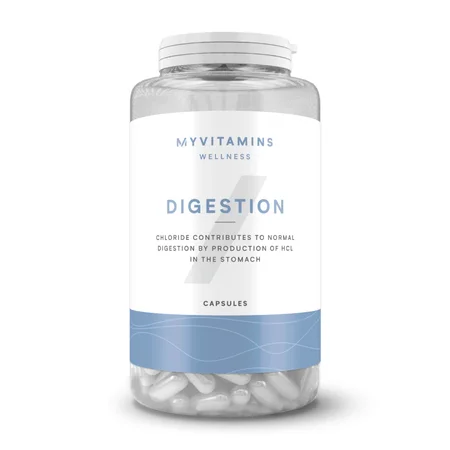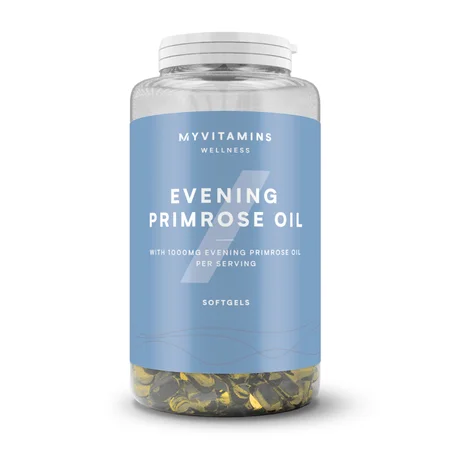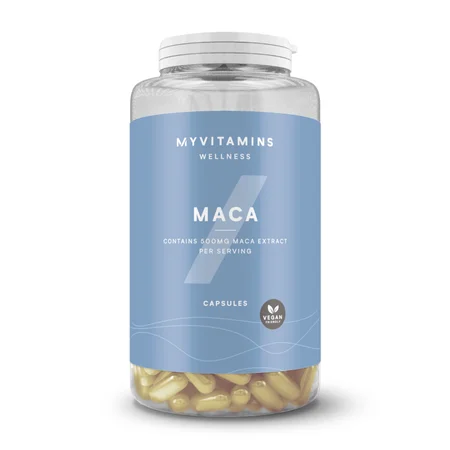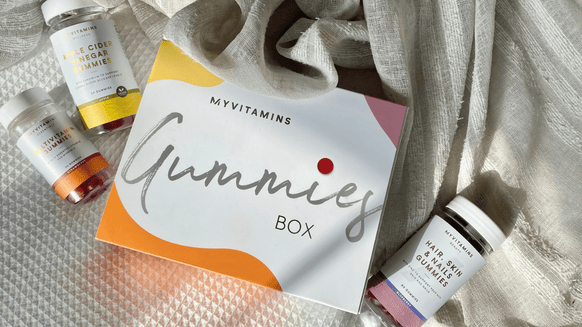10 Best Vitamins For Over 50’s

Our nutritional needs change throughout life, and good nutrition can become even more important with age. The category of ‘older adult’ is usually considered to be 64 years and over however, big changes (such as the menopause) can affect health status and occur at a much younger age. This article explores which vitamins and supplements may be useful to support health with increasing age.
- Multivitamins
- Collagen Supplements
- Omega Supplements
- Vitamin D
- Ashwagandha
- Calcium Supplements
- Zinc & Magnesium
- Digestion Supplements
- Evening Primrose Oil
- Maca Capsules
Multivitamins
Multivitamins are generally a good all-rounder supplement, as they will include most of the important vitamins and minerals needed to support health. Myvitamin has various multivitamin options available, including a plant-based tablet and tasty gummies!
Benefits
Appetite often decreases with age, which can mean a lower intake of nutrients. In older adults, the gut can also be less functional, leading to reduced absorption of nutrients.
Dosage
1 tablet (or gummy) per day is the suggested dose for Myvitamin multivitamin products.
Potential Side Effect
Taking additional vitamins and supplements on top of a multivitamin supplement can equate to an intake greater than the recommended daily amounts; however, it is extremely rare to overdose on vitamins and minerals!
Collagen Supplements
Collagen supplements have gained popularity over the years, as the benefits of collagen are more understood. Collagen plays an essential role in the structure of joints and skin, with collagen levels typically decreasing with age.
- Collagen supports skin elasticity and hydration levels, both of which contribute towards younger looking skin. Collagen is also a vital component of cartilage which can be found in most joints; collagen adds a layer of protection to the bones and helps facilitate movement.
- Most research uses collagen in doses up to 10 grams; follow the product guidelines if unsure about how to use your chose form of collagen.
- Collagen supplementation generally causes very few side-effects (if any). Potential side-effects can include feeling sick, bloating, or diarrhoea.
Omega Supplements
Omega fatty acids are a type of healthy fat and are an essential part of the diet. Omega fatty acids plays a role in a variety of functions however, the body is unable to synthesise fatty acids, so must be taken in through diet. The most common omega fatty acids are omega 3, 6 and 9.
Benefits
Omega 3 fatty acids may help to protect against the loss of brain tissue that occurs as a result of ageing. Omega-3, 6 and 9 may help to reduce joint pain associated with wear and tear of joints; knees, hips, fingers and ankles are especially susceptible to damage as they are the most frequently used joints.
Dosage
An adult requires around 450mg of the omega fatty acids DHA and EPA – this is the equivalent to eating 1-2 portions of oily fish per week.
Potential Side Effects
Some fish oil products contain vitamin A which can cause side effects in excess; 1.5mg of vitamin A from dietary and supplement sources is the maximum recommended daily dose.
Vitamin D
Vitamin D is essential for energy levels and also contributes towards immune function. The majority of vitamin D comes from sun exposure however, skin becomes less efficient at metabolising vitamin D with age.
Benefits
The most common sign of vitamin D deficiency is tiredness – supplementation with vitamin D may help to improve energy levels, especially if sunlight exposure is limited. Vitamin D also supports the body to mount an immune response to invading bugs.
Dosage
It is recommended that everyone in the UK should supplement with vitamin D from October to March, as there isn’t enough sunlight to fulfil vitamin D requirements. Adults require 10 micrograms of vitamin D daily, which is equivalent to 400 IU (international units).
Potential Side Effects
Vitamin D is metabolised along with calcium – excess vitamin D may cause calcium build-up if taken over a long period of time. Supplementation with more than 100 micrograms is considered to be unsafe.
Ashwagandha
Ashwagandha is a supplement that falls under the category of nootropics. This class of supplements contains compounds that may have a positive effect on brain health when taken on a long-term basis.
Benefits
Nootropics may help to boost flow of sugar and oxygen to the brain. They also help to reduce the number of ‘free radicals’ – molecules caused by exposure to toxins and stress. Nootropics may help to improve thinking, learning and memory, all of which can become more difficult with age.
Dosage
Dosage of Ashwagandha can vary, but typically found in a daily dose equivalent to 750-1250 mg of extract.
Potential Side Effects
Potential side effects can include nausea and vomiting, although it is unlikely to cause side effects when used at the recommended dose.
Calcium Supplements
Calcium is an essential component of the bone matrix and is needed for bone-building cells to divide and multiple. Calcium also plays a role in heart and muscle contraction, helping to regulate heart rhythms and facilitate movement.
Benefits
Bone health reduces with age, which can lead to fragile and weak bones. This is especially true for post-menopausal women, as oestrogen acts to protect bone health. However, during menopause, oestrogen levels significantly drop.
Dosage
Adults (up to 64 years) require 700mg of calcium per day.
Potential Side Effects
Side effects due to over consumption of calcium can include tummy pain and diarrhoea. Taking less than 1,500mg a day is unlikely to be harmful.
Zinc & Magnesium
Zinc and magnesium both play a role in cell functioning; they also contain anti-inflammatory and anti-oxidant properties.
Benefits
Immune function can decrease with age – zinc not only supports gut health (which is an important part of immunity), but also helps to support the white blood cells which are used in the first line of defence of the immune system. Magnesium plays more of a role within brain health and may help to prevent the decline in cognitive function that can occur as a result of ageing.
Dosage
The recommend zinc intake is 9.5mg for men, and 7mg for women. Similarly, magnesium intakes are higher for men at 300mg per day, whilst women are recommended to have 270mg per day.
Digestion Supplements
The health of the bacteria living in the gut affects many functions within the body; it is important for a healthy gut and regular bowel habits, but also for the immune system. An imbalance in gut bacteria may even have a negative impact on mood, cognitive function, and energy levels!
Benefits
Myvitamins gut gummies contain live bacteria, which may help to improve gut health by boosting the ‘good’ bacteria. Making sure to incorporate at least 30g of fibre per day, along with adequate water intake will help to maintain a healthy gut.
Dosage
Myvitamin recommend a dose of 1 gut gummy per day. It can take up to 4 weeks to see improvement after introducing bacteria containing products.
Potential Side Effects
The addition of new bacteria may cause digestive discomfort at the start, with symptoms such as diarrhoea or nausea. However, these side-effects are uncommon.
Evening Primrose Oil
Menopause typically occurs between the ages of 45-55 years and can cause uncomfortable symptoms such as mood swings, brain fog and hot flushes due to reduced oestrogen levels. Evening primrose oil is often used to try and combat these symptoms, as the oil contains oestrogen-like compounds.
Benefits
The hot flushes and night sweats that occur in perimenopause are due to temperature regulation becoming more difficult. Evening primrose oil may lead to a reduction in the frequency and intensity of both hot flashes and night sweats. Primrose oil may also help to prevent vaginal dryness which can occur during perimenopause or post-menopause.
Dosage
It is recommended that 500-1000mg of evening primrose oil can be used up to three times a day.
Potential Side Effects
Like many other supplements, excess of evening primrose oil may cause gastrointestinal upset, with symptoms of bloating, nausea and diarrhoea.
Maca Capsules
Maca is a peruvian plant, and often sold in powdered form. Maca is incredibely nutrient dense, and has a naturally sweet taste so perfect for adding to smoothies and oat bowls. Like ashwagandha, maca plays a role in cognitive function.
Benefits
Libido can decline with age, and maca has been linked to improved sexual function due to it’s anti-oxidant properties. Furthermore, supplementation with maca powder may help to reduce cognitive decline (e.g. memory, learning) associated with ageing.
Dosage
Most research uses 1.5-3g of maca as a daily supplement, with the suggestion that excess of 3g may cause side effects.
Potential Side Effects
No serious side-effects have been noted for maca supplementation, although it may not be suitable for people with particular health conditions.
Talk To Your Doctor
This article is for educational purposes and should not be used as a substitute for medical advice. Myvitamins are not making any claims regarding the medical benefits of their products. If you have any concerns about your health then please contact your GP or other relevant healthcare professional.
Take Home Message
In summary, a variety of vitamins, minerals and supplements may be used to help fight the signs of ageing, and support health during the ageing process. Bone health, wear and tear, skin health and heart health are some of the biggest topics when it comes to age-related health.
FAQs
What nutrients does a 50 year old need?
The most important vitamins and minerals for over 50’s are those that support joint health, cognitive function and heart health.
What is the best vitamin to take at age 50?
There is no one vitamin that is best to take during this time in life, as nutritional needs vary for everyone! However, vitamin D is important between October – March (for all age groups, not just older adults) due to low levels of sunlight during these months in the UK.
What is the best vitamin to take daily?
If you aren’t sure where to start with supplementation then a multivitamin could be useful to help support overall health.
How can I boost my energy after 50?
Energy levels depend on a variety of factors including sleep (or lack of), hormone health, diet, exercise levels, and mood. Making sure to eat a healthy balanced diet which contains all of the relevant vitamins and minerals is important, as is exercising regularly – around 150 minutes of moderate intensity exercise per day.


